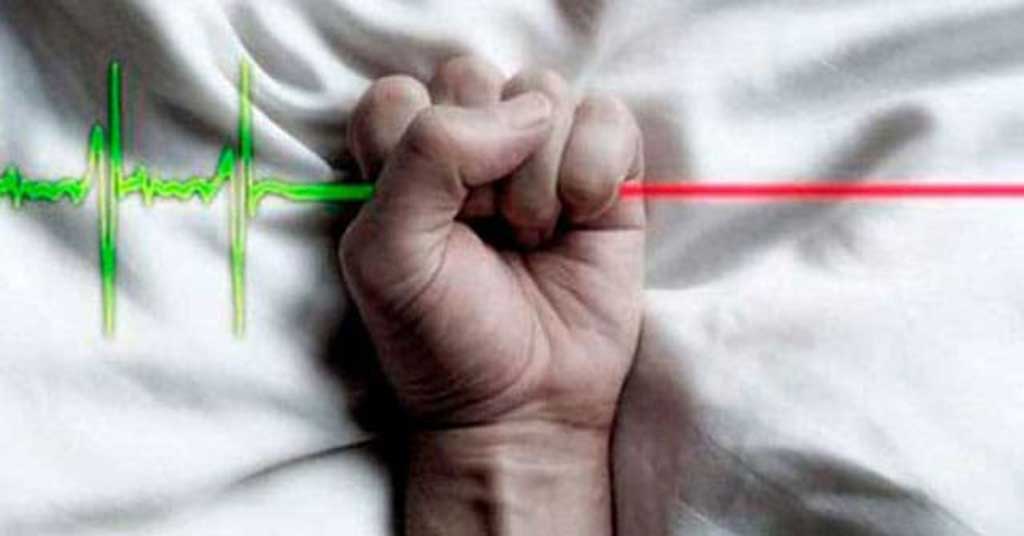MAiD should not be a response to depression
Canadians need real mental health support, not state-sanctioned suicide

By Daniel Zekveld
If the law Parliament plans to roll out in 2027 had been on the books 15 years ago, Member of Parliament Andrew Lawton says he’d probably be dead. He’s not exaggerating. He’s referring to Canada’s scheduled expansion of medical assistance in dying (MAiD) to include people suffering only from mental illness.
Lawton, who survived a suicide attempt during a period of deep depression, knows what’s at stake. So do others who’ve shared similar stories. What they needed back then wasn’t a government-approved exit plan. They needed care, time, and something MAiD quietly discards: the possibility of recovery.
MAiD, medical assistance in dying, was legalized in Canada in 2016 for people with grievous and irremediable physical conditions. The 2027 expansion would, for the first time, allow people to request MAiD solely on the basis of a mental illness, even if they have no physical illness or terminal condition.
With the expansion now delayed to March 2027, Parliament will once again have to decide whether it wants to cross this particular moral threshold. Although the legislation was passed in 2021, it has never come into force. First pushed back to 2024, then to 2027, it remains stalled, not because of foot-dragging, but due to intense medical, ethical and public concern.
Parliament should scrap the expansion altogether.
A 2023 repeal attempt came surprisingly close—just 17 votes short, at 167 to 150. That’s despite unanimous support from Conservative, NDP and Green MPs. You read that right: all three parties, often at each other’s throats, agreed that death should not be an option handed out for depression.
Their concern wasn’t just ethical, it was practical. The core issues remain unresolved. There’s no consensus on whether mental illness is ever truly irremediable—whether it can be cured, improved or even reliably assessed as hopeless. Ask 10 psychiatrists and you’ll get 12 opinions. Recovery isn’t rare. But authorizing MAiD sends the opposite message: that some people’s pain is permanent, and the only answer is to make it stop—permanently.
Meanwhile, access to real mental health care is sorely lacking. A 2023 Angus Reid Institute poll found 40 per cent of Canadians who needed treatment faced barriers getting it. Half of Canadians said they outright oppose the expansion. Another 21 per cent weren’t sure—perhaps assuming Canada wouldn’t actually go through with something so dystopian.
But 82 per cent agreed on one thing: don’t even think about expanding MAiD before fixing the mental health system.
That disconnect between what people need and what they’re being offered leads to a more profound contradiction. Canada spends millions promoting suicide prevention. There are hotlines, campaigns and mental health initiatives. Offering MAiD to people in crisis sends a radically different message: suicide prevention ends where bureaucracy begins.

Even Quebec, normally Canada’s most enthusiastic adopter of progressive policy experiments, has drawn the line. The province has said mental disorders don’t qualify for MAiD, period. Most provincial premiers and health ministers have called for an indefinite delay.
Internationally, the United Nations Committee on the Rights of Persons with Disabilities has condemned Canada’s approach and urged the government not to proceed. Taken together, the message is clear: both at home and abroad, there’s serious alarm over where this policy leads.
With mounting opposition and the deadline for implementation approaching in 2027, Parliament will again revisit the issue this fall.
A private member’s bill from MP Tamara Jansen, Bill C-218, which seeks to repeal the 2027 expansion clause, will bring the issue back to the floor for debate.
Her speech introducing the bill asked MPs to imagine someone’s child, broken by job loss or heartbreak, reaching a dark place. “Imagine they feel a loss so deep they are convinced the world would be better off without them,” she said. “Our society could end a person’s life solely for a mental health challenge.”
That isn’t compassion. That’s surrender.
Expanding MAiD to mental illness risks turning a temporary crisis into a permanent decision. It treats pain as untreatable, despair as destiny, and bureaucracy as wisdom. It signals to the vulnerable that Canada is no longer offering help—just a final form to sign.
Parliament still has time to reverse course. It should reject the expansion, reinvest in suicide prevention and reassert that mental suffering deserves treatment—not a state-sanctioned exit.
Daniel Zekveld is a Policy Analyst with the Association for Reformed Political Action (ARPA) Canada.
The views, opinions and positions expressed by all Troy Media columnists and contributors are the author's alone. They do not inherently or expressly reflect the views, opinions and/or positions of Troy Media or White Rose Intelligence.
